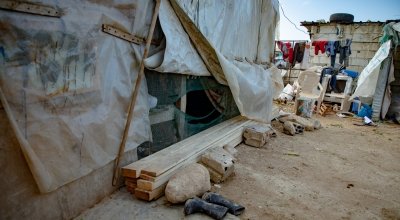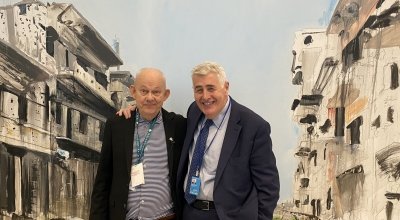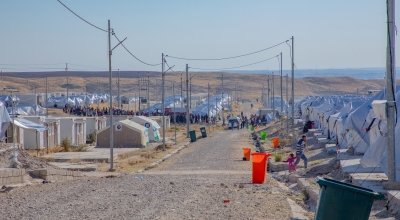
Read our 2023 annual report

Knowledge Hub
Another day of uncertainty is one too many
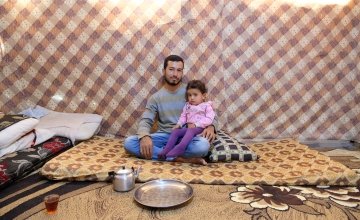
It is no exaggeration to say that the Syrian people we met last week in northern Lebanon are living on a knife edge. Even before embarking on their journey, they had already experienced enough - fear, pain, loss and displacement. It might be relatively safe now, but their todays and tomorrows are still consumed by uncertainty.
They need no reminder that the crisis is now in its tenth year. Some of those we visited in the Akkar region have been here for seven years. They live in makeshift tarpaulin-draped tents or in stark concrete buildings, originally constructed to house chickens. We met one elderly couple who inhabit a petrol station storeroom. It is a tough existence.
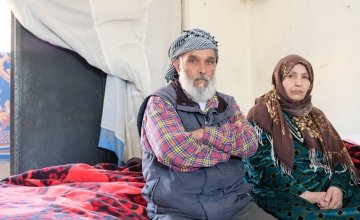
Winter is almost at an end and most have made it through another year. But even that is something they do not take for granted - their survival dependent on how disruptive the snow, how destructive the wind, how freezing the temperatures.
We met one family whose tent was flooded a few weeks ago because it is situated on arable land at the bottom of a hill. Why live here, we ask? They are not able to afford an alternative on higher ground. All we can do is provide them with mattresses and blankets to meet their immediate needs. They live in dread of the next big downpour.
On top of all that, the current economic situation in Lebanon is pushing people – both Lebanese, and Syrian refugees – to their limits. Food prices have soared. One young family say that it is three months since they last ate meat, and now the cost of vegetables and fruit, which grow in abundance here, have tripled in a few weeks. Today, their meal will consist of cheap staples like rice and oats and little else.
Concern has helped reinforce and refurbish these temporary dwellings by providing sheeting and wood, and installing windows, doors, clean water, toilets and sewage tanks - all ways to make life more bearable and keep dignity and self respect alive in such bleak conditions. We also negotiate rent freezes and reductions. Even then, circumstances can overwhelm. One family told us they had moved seven times. How long will it be before we have to pack up again, they ask.
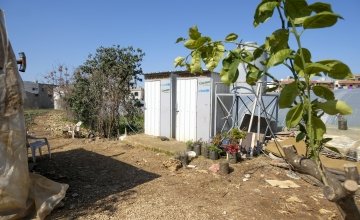
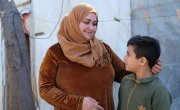
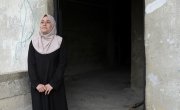
The Syrian people who live here in northern Lebanon are resilient. But you wonder just how much more they can take. Battered by circumstances, the elements, political manoeuvring, a fluctuating economy - so much seems to be against them. They move, they resettle, they find ways to survive - and on it goes. It has become a relentless cycle, facing what comes their way and making the most of it.
As our time in Lebanon ends, we leave the hills of Akkar and return to the capital. We walk through the peaceful back streets of this ancient city away from the boutiques and flashy hotels, past old pockmarked buildings. Beirut was once one of the most bombed places on earth - an accolade also reserved for my home city, Belfast. The images from more than 30 years ago of shelled Beirut hotels and ruined streets, of people fleeing for their lives, of human suffering linger in my memory. I can only hope that peace will eventually prevail in Syria and its grand cities. For the people I met last week, another day of uncertainty is one too many.
Follow our work on Instagram
Other ways to help
Corporate support
Is your company interested in working together for a common cause?
Fundraise for Concern
From mountain trekking to marathon running, cake sales to table quizzes, there are lots of ways you can support our work.
Buy a gift
With an extensive range of alternative gifts, we have something to suit everybody.
Leave a gift in your will
Leave the world a better place with a life-changing legacy.
Volunteer with Concern
The lots of ways to get involved with our work as a volunteer
School fundraising
Without the generous support from schools, we wouldn't be able to do the work that we do.


